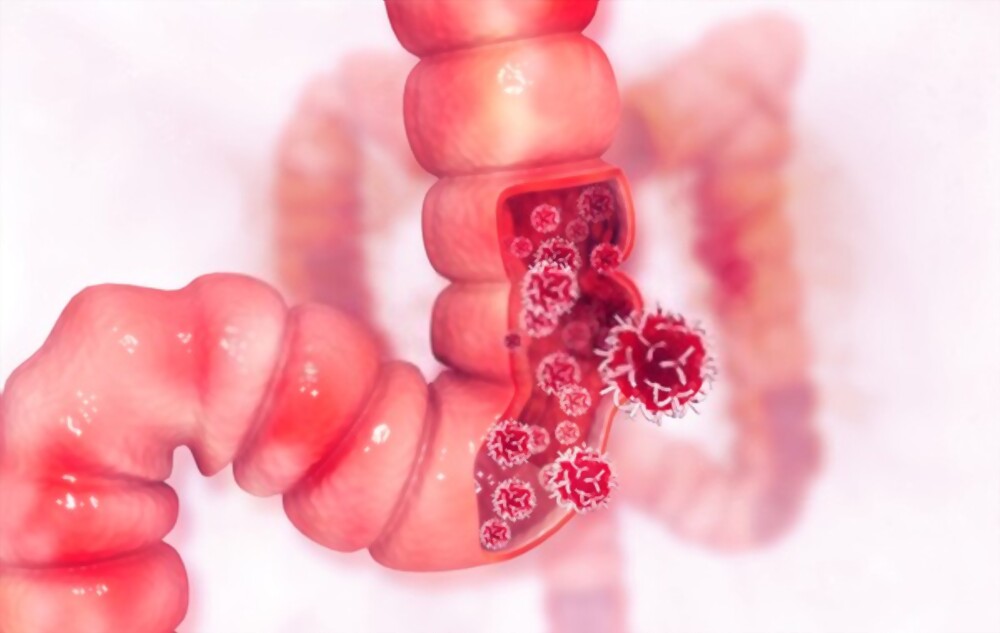Colon cancer (also referred to as colorectal cancer or bowel cancer) is the third most common cancer worldwide and is characterised by the presence of cancerous tumours in the colon or rectum. This form of cancer typically starts with little polyps which can become cancerous if not removed from the wall of the colon.
To help detect these colon polyps your doctor may refer you for a colonoscopy screening to make sure they aren’t malignant and remove these. It is possible to fully recover from colon cancer if caught early and the tumours have not metastasised (spread to other parts of the body). You may or may not have a family history of bowel cancer, but if you do then your risk of developing it is increased.
What Are The Bowel Cancer Symptoms?
1. Changes in Bowel Habit
A change in bowel movements or bowel habits occurs in nearly all sufferers of colorectal cancer, either with bouts of constipation or diarrhoea without a plausible cause. People often take over the counter stool softeners or laxatives rather than seeking medical advice. But if your symptoms don’t resolve quickly, see your doctor.
2. Rectal Bleeding
Bleeding from the rectum is a symptom of bowel cancer and is common in people with more bouts of constipation than diarrhoea as the cancer progresses. Watch for tar-coloured, black stools which are a sign of bleeding higher up in the colon, whereas blood from the rectum and lower colon can be bright red.
3. Abnormal Stools
Stools will change once colon cancer is present, often becoming as thin as a pencil, and the colour may be dark due to internal bleeding or fresh blood. If your stool quality remains abnormal consult your doctor.
4. Vomiting and Nausea
This may not occur in every case of bowel cancer. However, some people with stomach discomfort feel the urge to vomit.
5. Stomach Discomfort
Abdominal pain, often daily, can be a sign of bowel cancer. This cancer also causes bloating and a feeling of fullness even if you haven’t eaten. Stomach cramps, belching and gas may develop but may also be symptoms of reflux, inflammatory bowel disease, or irritable bowel syndrome and can be misdiagnosed.
6. Appetite Loss
Many bowel cancer sufferers lose their appetite which is not fully understood by researchers. It’s possible that the stomach discomfort causes a lack of interest in food but where there is no abdominal discomfort the cause of the loss of appetite is hard to fathom.
7. Weight Loss
The weight loss experienced by people with bowel cancer is caused by various factors including loss of appetite which lessens the number of nutrients consumed. Cancer cells need more calories to divide rapidly and the body uses more energy and resources to fight the tumour it can lead to weight loss.
8. Unexplained Tiredness
When a person is fighting colorectal cancer their immune system goes into overdrive which means the body needs extra energy. If there is a loss of iron-rich red blood cells from the rectum it may cause fatigue. If you do not eat enough to sustain energy levels you may feel sleepy, lethargic, weak and tired for no apparent reason. Those aged over 50 can develop an iron deficiency and anaemia which causes a general malaise and weakness. A blood test can uncover such a deficiency so consult your doctor if you have symptoms.
Book a Bowel Screening Test & Examination Today
If you have experienced or currently experiencing any of the signs and symptoms of colorectal cancer mentioned above, we highly recommend you visit your GP and get a bowel cancer screening. For more health information regarding colon cancer symptoms, diagnosis, treatment, and more see our Bowel Cancer Symptoms page.
At Direct Endoscopy, we provide highly comprehensive bowel screening tests (including colon cancer screenings) as well as consultations that’ll provide you with in-depth and accurate health information about your cancer risk, risk factors, bowel cancer treatment options (if needed), and tailored medical advice. Book an appointment today!
- When to get a colonoscopy, why you need one and how it all works - November 22, 2021
- Why Your Doctor Wants You to Get a Colonoscopy - October 12, 2021
- Why Australia’s Bowel Cancer Screening Age Should Be Lowered to 40 - July 23, 2021

